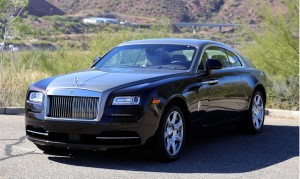Rolls-Royce Motor Company has a storied history of selling the most exclusive vehicles to the most wealthy patrons on the planet. Their marketing strategy is simple: for your willingness to part with incredible sums of money, we are willing to supply you with every and any possible amenity and option in your sedan of choice.
This differentiation focused strategy has kept Rolls afloat for over a century. Yet up-and-comers in the quarter of a million dollar and up segment of vehicles like Mercedes-Benz’s S65 AMG are making investors in the Spirit of Ecstasy sweat. In class, we learned that market strategy and operating systems must be constantly re-analyzed and adapted to stay ahead of the competition.
Such is not the case for Rolls-Royce. 2014 has been RR’s most successful year in it’s history. Demand for their vehicles has skyrocketed. Brands that supply exclusive services are exempt from needs to change and innovate, because it will cost them their differentiation. Rolls is case and point. A hand made vehicle that takes months to craft would strike any businessperson as remarkably inefficient. Why, they would ask, would a company like Rolls Royce not streamline their operating systems to build more cars to the same level of quality in a year? The answer is simple. Rolls-Royce is an exclusive brand, and the more cars it sells, the marginally less exclusive they become, and the weaker their unique ability to differentiate themselves diminishes. RR’s executive branch knows this. They don’t live by the common “innovate to succeed” strategy. They exemplify the storied phrase: If it ain’t broke… don’t fix it.
Source:
